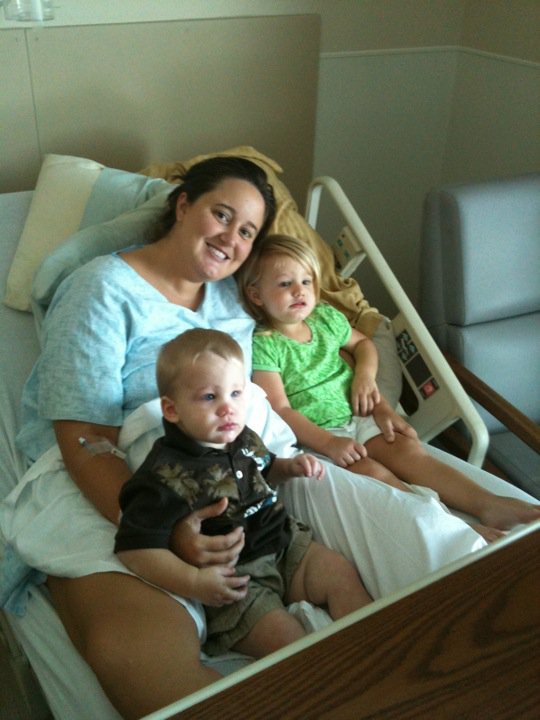
She looks normal.
Why doesn’t she participate?
Why is her husband the one taking the kids to school every day?
She’s overweight; she can’t be suffering from a gastro issue.
She’s lucky she married someone that would take care of their kids.
These are all comments I’ve heard over the years, especially after having children.
My Back Story
I started having bathroom problems at age 12.
Then again, at age 17 and throughout my adult life.
I had to do a medical withdraw from college, and then move back home with my parents to figure out how to live with a chronic illness.
At 18, I was diagnosed with Ulcerative Colitis. I had issues that weren’t controlled by medicine. In 2011 (age 30), I got the call that I didn’t have Ulcerative Coliti, but I had Crohn’s Disease.
It was one of those calls that you feel in the pit of your stomach. It was also a call that made me realize I wasn’t crazy the last 15 years of my life. After a year of trying new stronger medicine, I eventually started IV treatments. I’m happy to say I’ve been in remission for a few years.
That doesn’t mean I don’t have bad days or I’m 100% all the time. What it does mean is I’m managing it. I go to the hospital every six weeks for IV treatment. The treatment makes me feel like I have the flu for a few days after. Then I feel great again. I have to plan life accordingly, and it’s just part of living with a chronic illness.
Expectations of an Invisible Illness
What I never expected along the way were the positive and negative reactions to this disease.
The Bad
I didn’t expect so many people to be judgemental. Just because someone looks healthy and normal doesn’t mean they are. If you can remember one thing, then I want you to remember that. This disease has taught me to be more kind, patient, and caring. I try not to judge someone based on looks alone anymore.
Think back to the time you saw someone park in an accessible parking spot that looked abled body. What was your first thought about them? Did you ever think they may have rheumatoid arthritis so bad they should use a wheelchair but don’t want to? Or maybe they look young and healthy but have lung issues, and after so long of walking around, they struggle.
Remember, just because it’s an invisible illness doesn’t mean that it isn’t real.
The Good
I didn’t expect the mom tribe I found, the sweet friends that offer to help in any way they can. They check on me when I’ve been MIA for a few days. Offer to make meals, take kids to practices, or anything they can do to help me. I think this disease has made me vulnerable. I don’t frequently ask for help, but those closest to me know that I really am in need when I ask for help.
This disease has also pushed me to be stronger. Just ask my husband. I hardly say no to anyone that asks. It has its downfalls and its positives. It keeps me going.
There are so many people with invisible illnesses: Your neighbor, friend, family member, mom or dad at school, and so many more.
Always remember that YOU may not see the illness, but they will never forget how you treated them.
Next time you see someone that looks normal, but something seems off, give them Grace.
They may need it but won’t stop long enough to ask.















